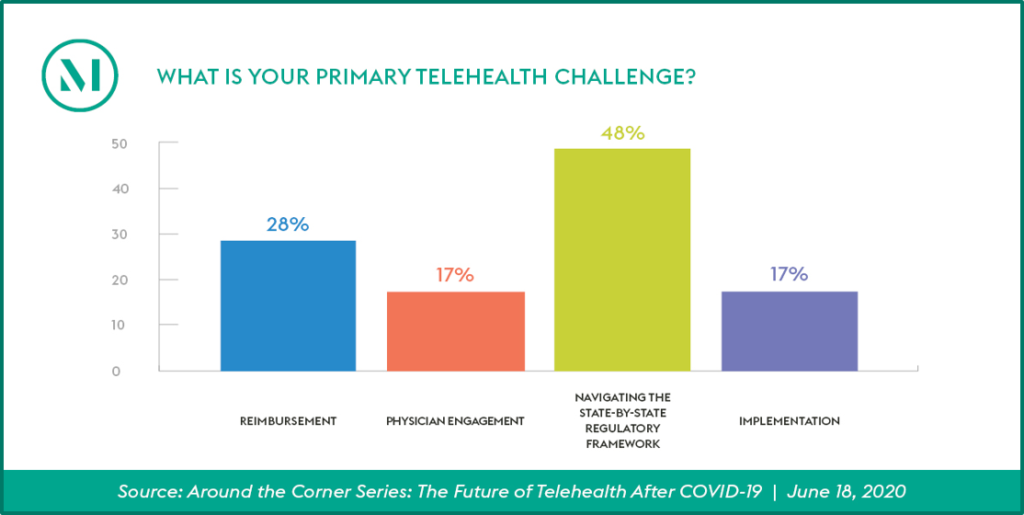Prior to the pandemic, health providers and stakeholders were quickly moving to develop and expand existing telehealth programs. Now we are seeing an adoption of telehealth solutions that far surpasses all of the activity we saw in the past five years combined.
Joined by leaders from BDO, Babylon Health, Crossover Health and the Illinois Bone & Joint Institute, we discussed what the future of digital provider/patient engagement may look like after COVID-19 and the legal factors that influence implementation. Telehealth is the new normal and there is no turning back.

PROGRAM INSIGHTS
- There is now recognition that telehealth can, in fact, replace in-person visits in many situations. Patients and healthcare providers have quickly turned to telehealth to provide care for existing and new healthcare conditions during the pandemic. This increase in use has provided additional data demonstrating the value of telehealth. In addition to telehealth visits, patients are looking to patient care navigators and wellness advisors for basic healthcare information that can empower them to manage their healthcare needs before seeking treatment from a licensed healthcare professional.
- The regulation of telehealth on a state-by-state basis is an ongoing hindrance to telehealth providers in the United States. While the state waivers on professional licensure and care delivery during the COVID-19 public health emergency have temporarily lowered some of these barriers, these waivers have or will soon expire in many states, once again leaving telehealth providers with the burden of developing complex compliance strategies that differ from state to state.
- For telehealth to achieve its full potential, it needs to be freed from the constraints that apply to in-person episodic care. In doing so, remote monitoring can meaningfully engage patients in real time to actively manage care on an ongoing basis, without interruptions or the need for a pre-scheduled visit.
- The COVID-19 pandemic is digital health adrenaline – forcing people rapidly and without warning to pivot to telehealth. But when technology works well and effectively, demand will persist well beyond the catalyzing event. If patients receive superior quality care through digital technologies and superior convenience, this improved experience will force the traditional healthcare delivery process to continue its changed approach.
- The healthcare transactional business model is a challenge that holds back widespread adoption of telehealth. Now that lawmakers have data that demonstrates the value of telehealth, reimbursement codes for different delivery modalities will need to be reevaluated. This reevaluation will future catalyze greater adoption of telehealth by providers as payments will align more appropriately with the services delivered.
For a deeper dive into these topics, please listen to our webinar recording, available here.


